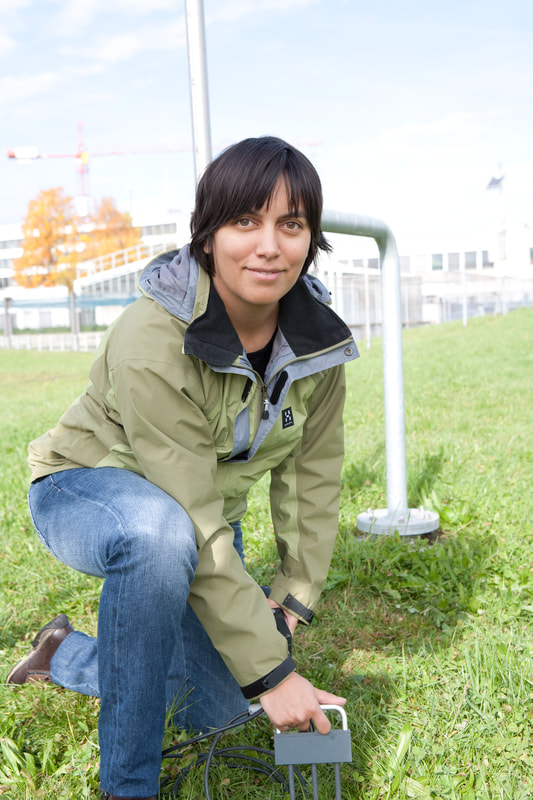What does ecohydrology mean to you?
It is the interface between vegetation and water cycle processes on land. It is about how biological processes (photosynthesis, plant physiology, ecosystem dynamics) interact with physical processes affecting the water exchanges (energy and mass balance, thermodynamics, gravity). It is essential to consider the two-way interactions taking place: Lack of water affect plants, but plants have the dominant control on a main water flux on land, namely evaporation of water from the land surfaces. I am also fascinated about how these interactions are modified with human-induced climate change, i.e. about the effects of climate regime shifts and changes in CO2 concentrations on plant-water relations, and in turn on the role of plant-water relations in affecting the land carbon sink in a warmer climate.
What are your undergraduate and graduate degrees in?
I started with an undergraduate degree in Biology at the University of Lausanne and completed my 3rd year which would be now equivalent to a BSc degree. I then switched to a MSc degree in Environmental Sciences, with a major in Atmospheric Physics at ETH Zurich. I did my PhD degree at ETH Zurich in Atmospheric and Climate Sciences.
How did you arrive at working in/thinking about ecohydrology?
I was always fascinated by both biology and physics and had a lot of trouble deciding which of the two to study when I started my university studies. When I realized the role that plants play in weather and climate dynamics, and how much uncertainties there remained in their understanding, I automatically realized that this was what I wanted to study. This was in my 3rd year of biology, I was then an exchange student at ETH Zurich and attended climate lectures out of curiosity. Another formative experience was a 6-month internship I did two years later studying medicinal plants in the Amazon rainforest in Ecuador. I was captivated by the “cloud forest”, a zone with persistent cloud cover, which is continuously fed by evaporation from the rainforest. This motivated me to do research on plant-water interactions.
What do you see as an important emerging area of ecohydrology?
The interface between the carbon and water cycles seems particularly exciting and important to me. Land is a sink for almost 30% of our CO2 emissions. It is unclear if this sink will be maintained under further increases in CO2 concentrations and higher temperatures, for instance because droughts could become more frequent in some regions. In a recent study (Humphrey et al. 2018, Nature), we have found that current climate models underestimate the observed interannual correlation between water availability on land and CO2 fluctuations on global scale. This suggests that our models may underestimate how strongly plants are affected by water deficits and how this affects in turn the global carbon cycle. We need more scientists investigating these interactions, ideally with different backgrounds: i.e. ecohydrologists, but also climate scientists, biogeochemists and ecophysiologists.
Do you have a favorite ecohydrology paper? Describe/explain.
My favorite paper in the area of ecohydrology is the landmark study by Randy Koster and Chris Milly in 1997. They were able to characterize the soil moisture dynamics of all land surface models at the time using two simple relationships: 1) the efficiency of the soil’s evaporation sink integrated over the active soil moisture range, and 2) the fraction of this range over which runoff is generated. I loved how this simple framework could capture much of the behavior of the models, no matter how complex they appeared to be. I was very fortunate to do my postdoctoral research with Randy Koster at NASA.
What do you do for fun (apart from ecohydrology)?
I spend time with my family. My husband and I have two kids, who are 6 and 10. We like to go on small bike tours, skiing in the mountains, watching movies, and travelling together. I also play go, a Chinese board game. Finally, I love to read books whenever I find time to.

 RSS Feed
RSS Feed